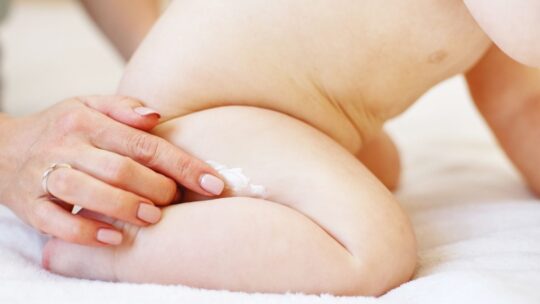
Babies have sensitive skin, and parents need to care for it using different ways. Every baby has a unique skin type, and since babies can not speak up about what they are feeling, it is primarily the parenting instinct that works here. Each season has a different effect on the baby’s skin in unique ways.
Generally, winters make the skin dry, and summer can cause rashes. However, toddlers with eczema are the most affected by weather changes. This article discusses the various effects of weather on baby skin and how you can treat them. Read on to relieve your baby of the redness, itchiness, and other skin issues.
Summer
Summers are a good season to keep the baby’s skin healthy. A little exposure to sunlight helps in retaining the moisture. Most parents use baby skincare products like moisturizers, sunscreen, and talcum powder on their babies. Experts recommend using only dermatologically tested and clinically approved products on the skin.
It helps keep the skin hydrated, moisturized, and free from sweat. Kids who have eczema skin can get relief from redness, but you need to ensure that they do not sweat much. Sweating can promote itching and increase eczema. In addition to baby care products, you can use cotton clothing, a cold water bath, and enough hydration to relieve the child of any skin irritations.
Winter
Winters make the baby’s skin dry and are one of the most challenging seasons for baby care. We use temperature controllers and dry air in the rooms to maintain the warmth; they also dry up the skin. The increased dryness can cause eczema and rashes; sometimes, the skin may scratch and bleed. Therefore, it is essential to keep the skin moisturized. You can use the emollient product on the baby to prevent environmental factors like dry air, allergens, etc., from drying up the skin.

In addition, you can pick layered clothing for your kid to avoid him from getting too heated up. Use a cotton shirt or jacket as the innermost layer to prevent the woolens from reacting with the skin. Many parents also keep the humidity level above the average percentage and use humidifiers to maintain the required moisture in the house.
Spring
Spring is the best season for your baby’s skin; It is neither too hot nor too cold. Therefore, it helps maintain the moisture in the skin both inside and outside the house. The mild temperature keeps the skin from sweating. Similarly, the humidity in the air prevents sit from drying. So, primary skincare can help you keep the baby safe from skin problems like eczema, rashes, etc.
Spring can cause skin problems if your child has seasonal allergies. Wind during the spring season consists of plenty of allergens. It has pollen from lawn mowing, flower budding, etc. It is problematic for children with eczema as it flares up during spring if parents do not take precautions. Ensure that you apply the required solution before letting your baby out.
Final Words

Each season has its pros and cons. The only thing common in all weathers is that you need to change the skincare routine and ensure it complies with the seasonal requirement. Parents of eczema-prone skin toddlers have to pay extra attention in all seasons to prevent it from flaring up. Keeping the skin moisturized, hydrated, and allergen safe is best to safeguard your baby’s skin.























